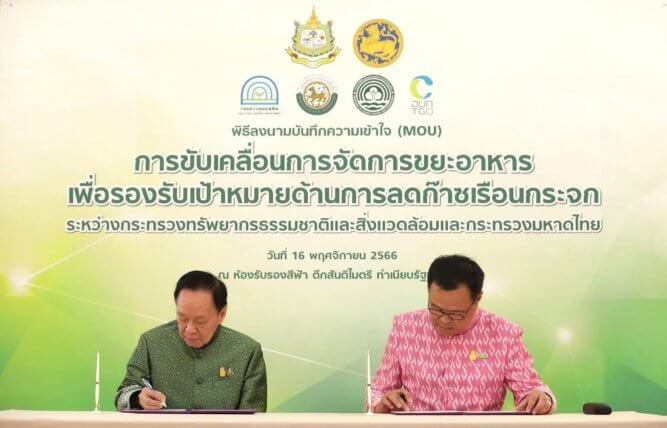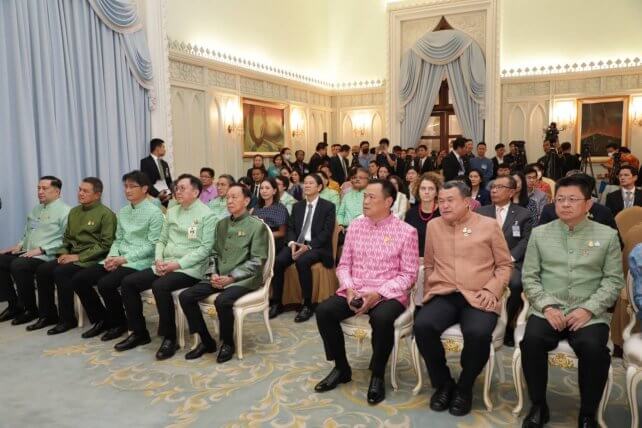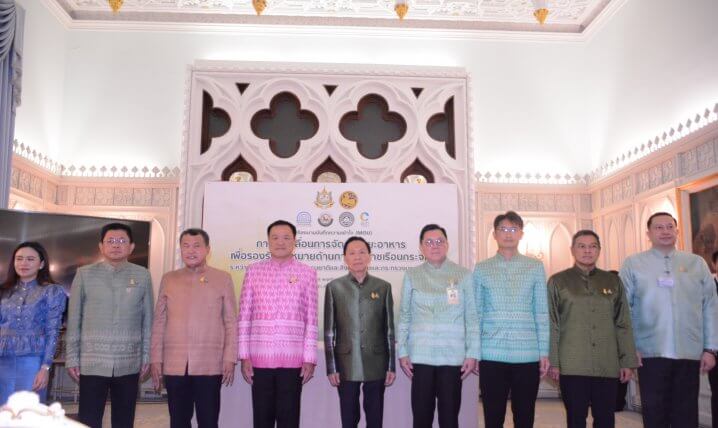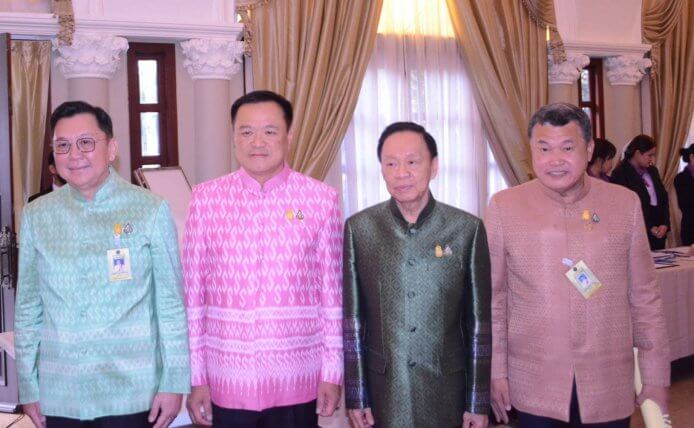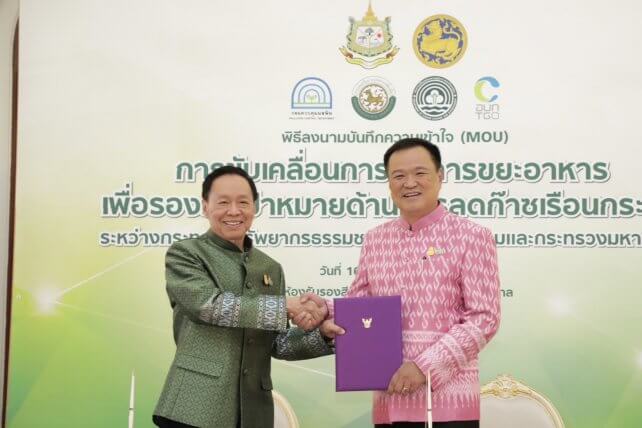
The Ministry of Natural Resources and Environment (MNRE) and the Ministry of Interior have collaborated to manage food waste for better environment and reduce greenhouse gases that affect climate change.
On 16th November 2023, Police General Patcharawat Wongsuwan, Deputy Prime Minister and Minister of Natural Resources and Environment, and Mr. Anutin Charnvirakul, Deputy Prime Minister and Minister of Interior, jointly signed the Memorandum of Understanding (MOU) between the Ministry of Natural Resources and Environment and the Ministry of Interior to mobilize food waste management to support the goal of greenhouse gases reduction. This signing ceremony was held at the Santi Maitri Building, Government House, Mr. Jatuporn Buruspat, Permanent Secretary of Ministry of Natural Resources and Environment, and Mr. Suttipong Juljarern, Permanent Secretary of Ministry of Interior jointed the ceremony as witness. Collaborating agencies include Pollution Control Department, Department of Local Administration, Climate Change and Environmental Department, and Greenhouse Gas Management Organization (Public Organization).
MNRE and Ministry of Interior has given importance to solve the problem of food waste management in 2021. MNRE conducted survey on the composition of municipal solid waste at disposal sites, revealed that proportion of food waste, 39% (9.68 million tons or 146 kilograms per person per year) of the total national waste generation of 24.98 million tons which calculated as food waste generated by the country. At present household food waste data is not available. The survey also found that 39% of food waste was edible and 61% was inedible. Food waste problem effectively in Thailand, Food Waste Management Roadmap (2023-2030) and Action Plan for Food Waste Management Phase 1 (2023-2027) have been formulated a framework of food waste management in Thailand. The goal of Roadmap and Action Plan is to reduce the proportion of food waste in municipal waste from 39% to no more than 28% by 2027, with measures covering reduction and separation at the source, and utilizing food waste for purposes such as animal feed and biogas production. This will help to reduce waste accumulation, disease spread, pollution, and greenhouse gas emissions, as food waste is a significant source of these gases. In 2026, Ministry of Interior is going to promote food waste management using wet waste bins to reduce global warming that It has been certified as a voluntary reduction in greenhouse gas emissions into atmosphere. This can reduce greenhouse gas emissions by more than 1,870,000 tons.
This memorandum of understanding will lead to tangible food waste management, encompassing the entire system from the source to the midstream and downstream processes, aiming to reduce municipal solid waste that needs disposal and decrease greenhouse gas emissions from the community waste sector. It promotes and supports local government organizations in separating and collecting sorted municipal solid waste, especially food waste, in both urban and rural communities. Additionally, development mechanisms to encourage participation from the government, public, and private sectors in food waste management.

